Abstract
The main aim of this research was to investigate the childhood predictors (age 8-10 years) of teenage antisocial behaviour (age 18 years) and adult social dysfunction (age 32 years). A sample of 411 London males was followed up from age 8 years to age 32 years. The most important childhood predictors of both outcomes (and of convictions) were measures of economic deprivation, poor parenting, an antisocial family and hyperactivity-impulsivity-attention deficit. However, childhood nervousness and social isolation were negatively related to teenage antisocial behaviour but positively related to adult social dysfunction. It was concluded that the development of adult social dysfunction depended not only on established causes of antisocial behaviour such as economic deprivation and poor parenting but also on causes of internalizing disorders such as childhood nervousness and social isolation.
Full text
PDF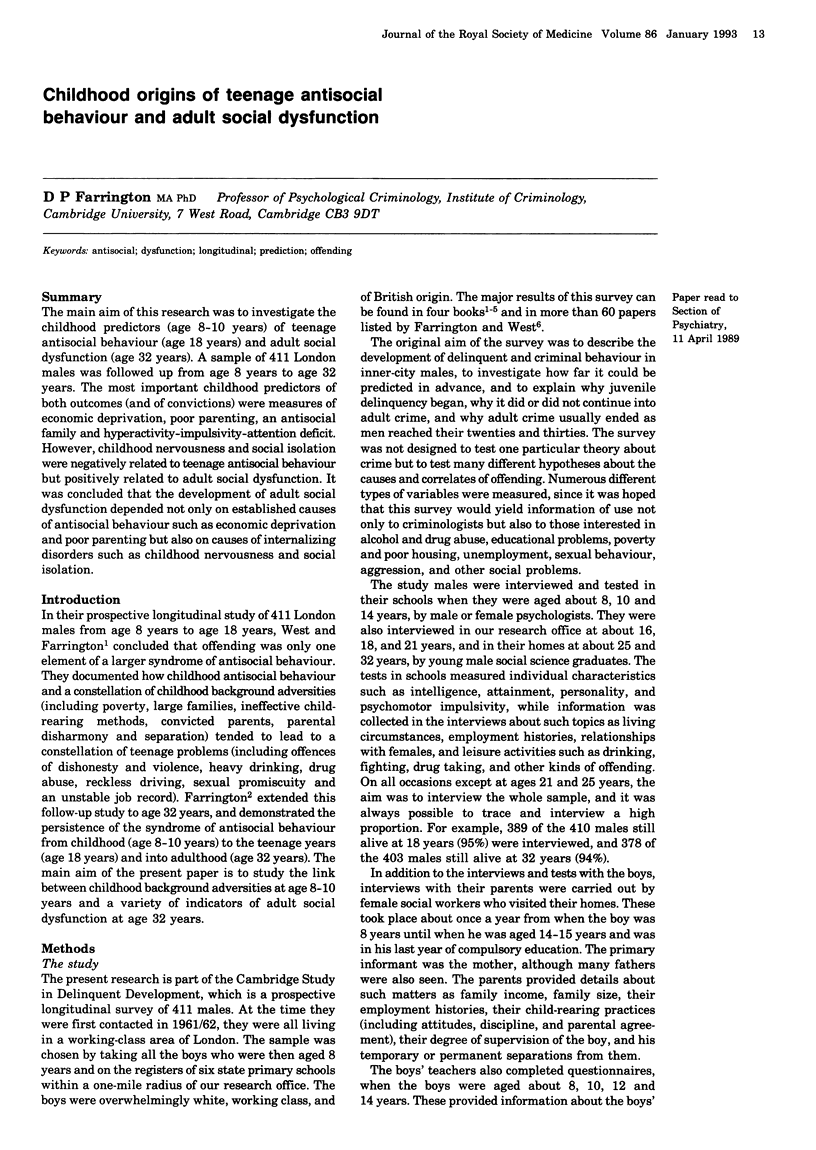
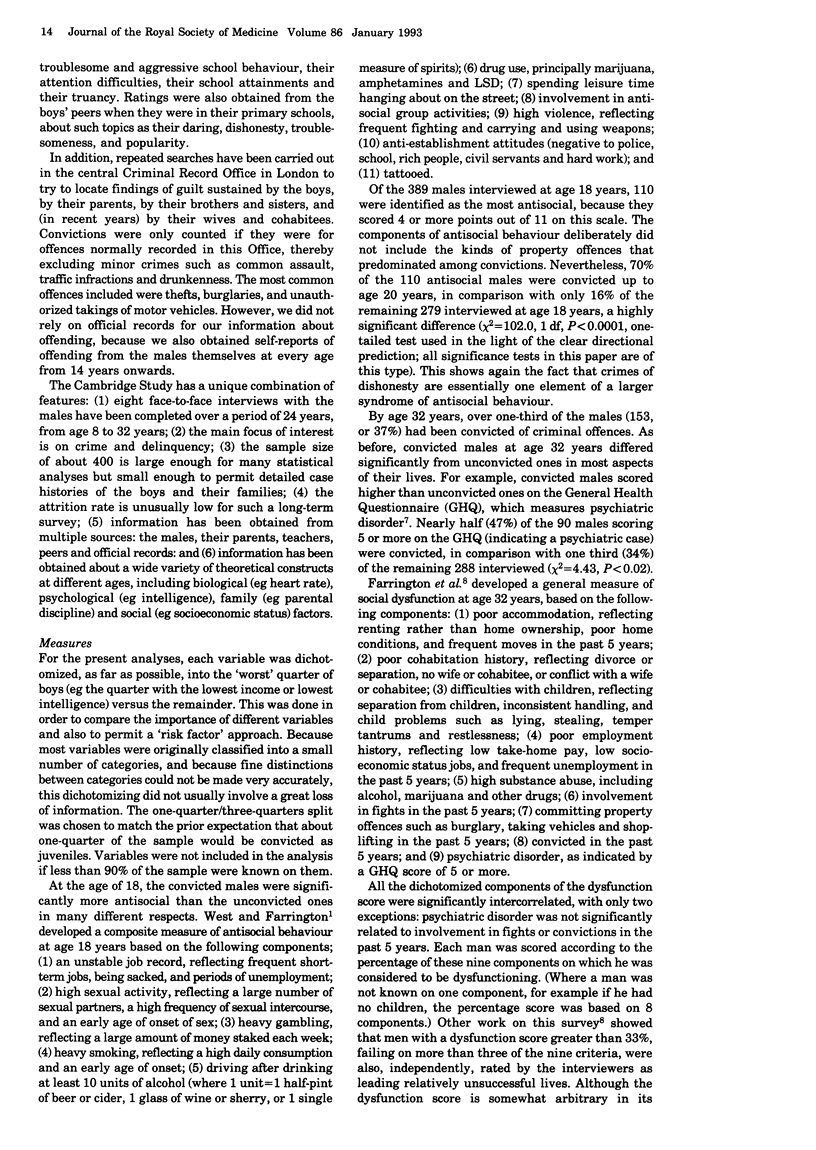
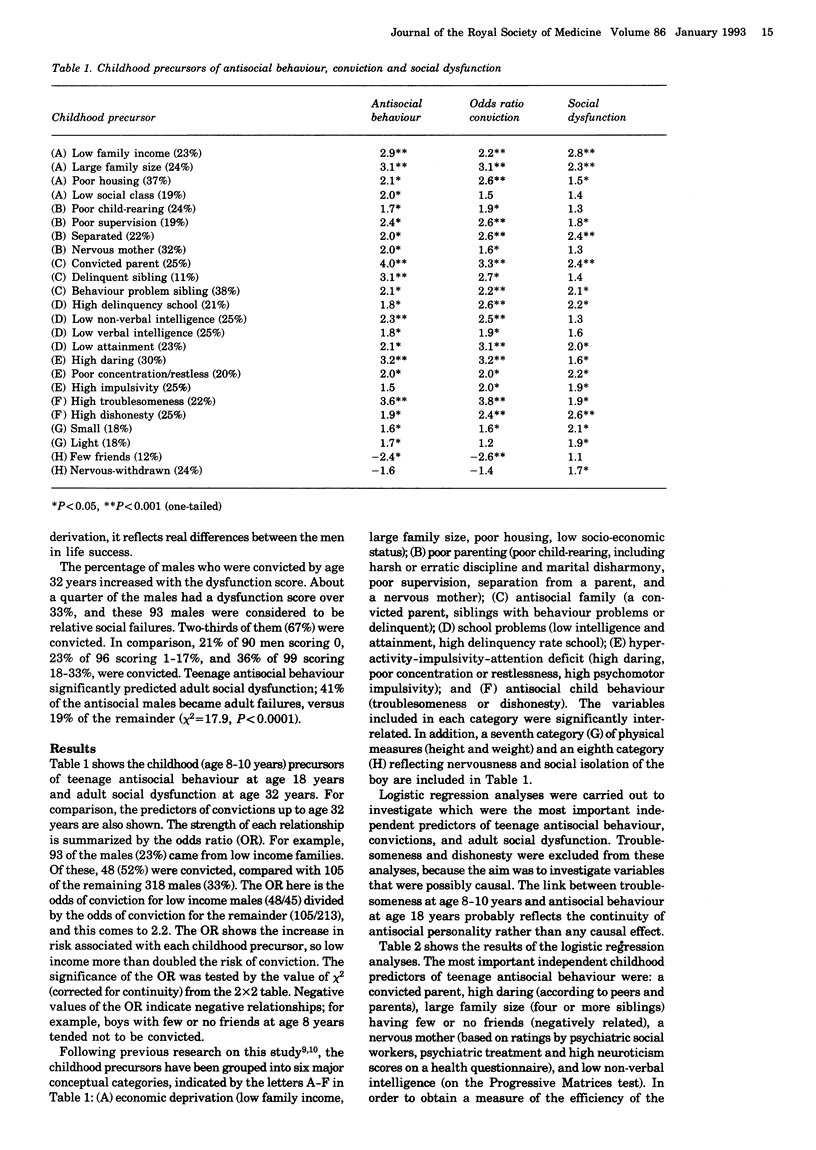
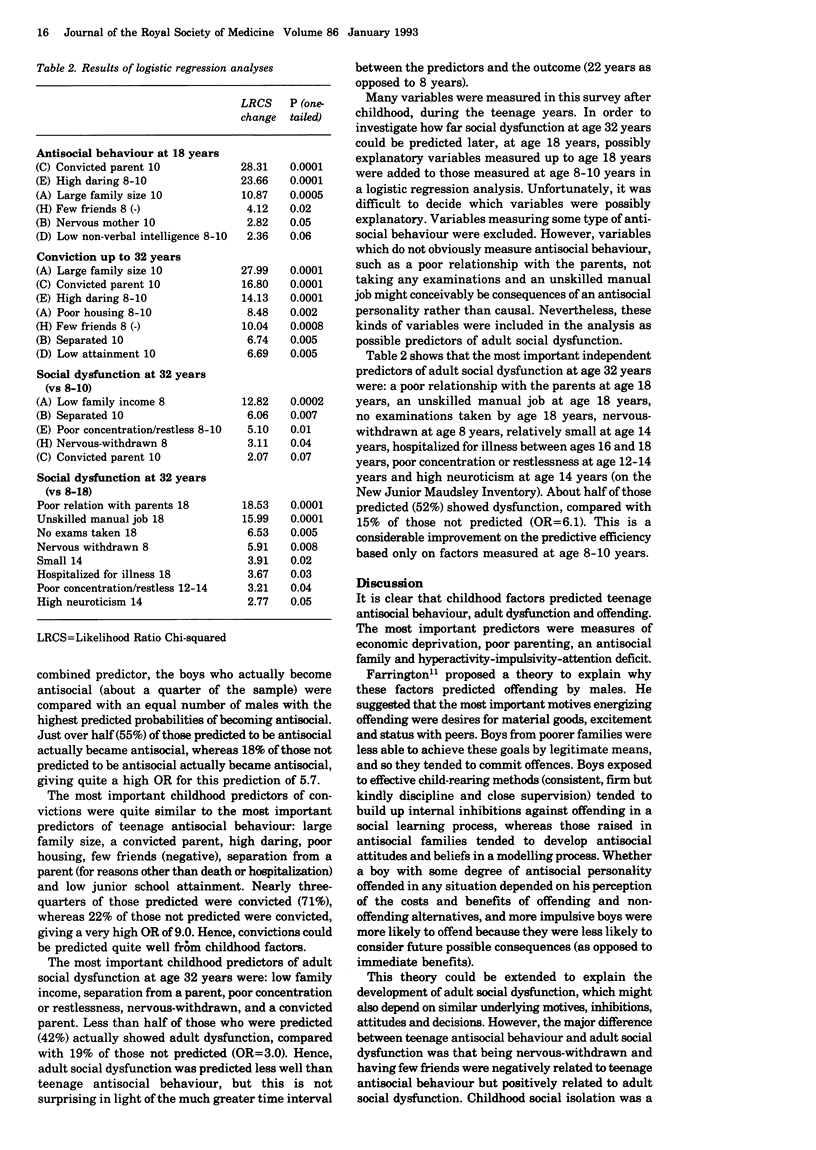
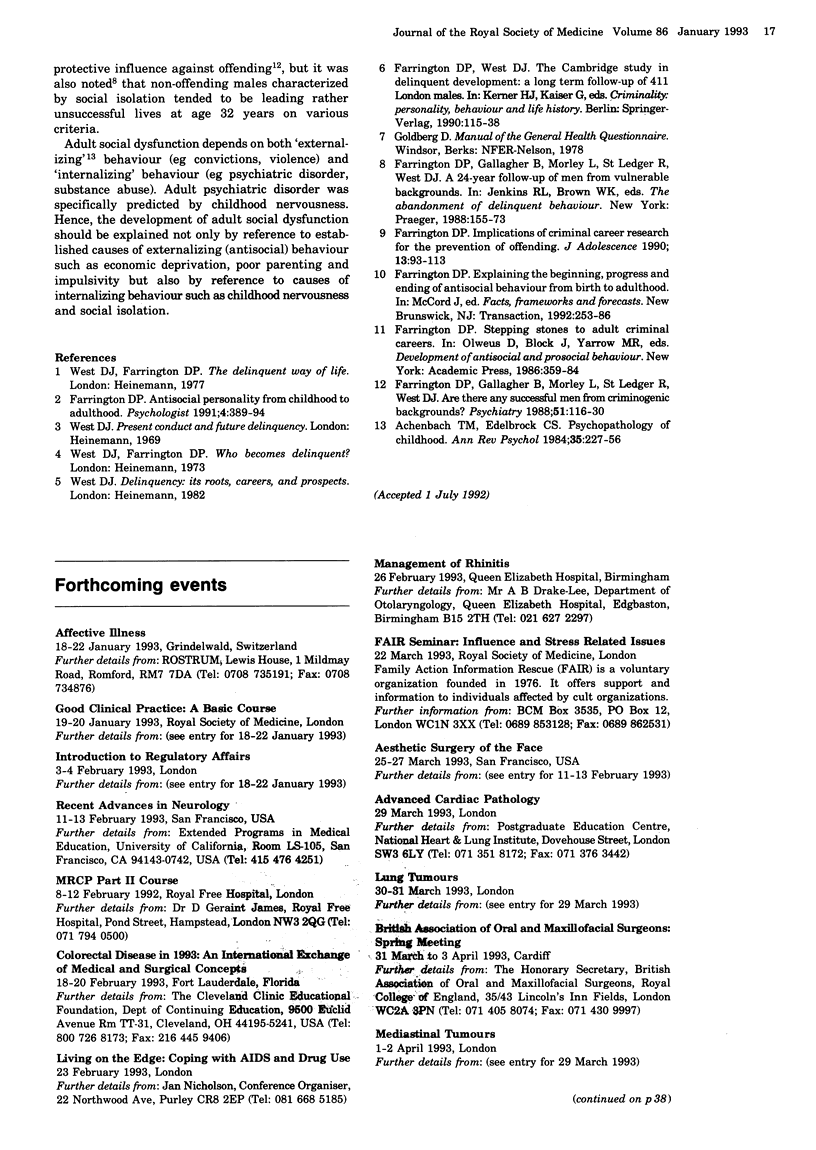
Selected References
These references are in PubMed. This may not be the complete list of references from this article.
- Achenbach T. M., Edelbrock C. S. Psychopathology of childhood. Annu Rev Psychol. 1984;35:227–256. doi: 10.1146/annurev.ps.35.020184.001303. [DOI] [PubMed] [Google Scholar]
- Farrington D. P., Gallagher B., Morley L., St Ledger R. J., West D. J. Are there any successful men from criminogenic backgrounds? Psychiatry. 1988 May;51(2):116–130. [PubMed] [Google Scholar]
- Farrington D. P. Implications of criminal career research for the prevention of offending. J Adolesc. 1990 Jun;13(2):93–113. doi: 10.1016/0140-1971(90)90001-n. [DOI] [PubMed] [Google Scholar]


